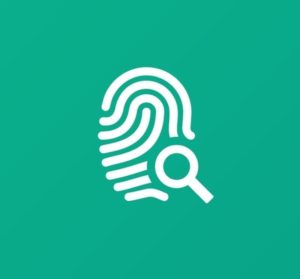Welcome to FindBiometrics’ digest of identity industry news. Here’s what you need to know about the world of digital identity and biometrics today:

Kansas Bureau of Investigation Completes ~$7M ABIS Upgrade
The Kansas Bureau of Investigation (KBI) has announced the successful upgrade of its fingerprint database, facilitated by $6.89 million approved by the Kansas legislature. The upgrade involved replacing the outdated Automated Fingerprint Identification System (AFIS) with the new Automated Biometric Identification System (ABIS), which offers enhanced efficiency and modern capabilities. ABIS now houses over two million fingerprint records and more than 596,000 palm prints, improving the process of collecting, managing, and comparing these prints for identification purposes.
Security Researchers Find Stolen SingPass Accounts on Dark Web
Security researchers at Resecurity have uncovered a substantial increase in dark web activity involving stolen identity information from Singaporean citizens. The investigation revealed a 230 percent rise in underground vendors selling these stolen documents, which are used for fraudulent activities, identity theft, impersonation scams, and to bypass Know Your Customer (KYC) protocols. The surge is linked to numerous data breaches affecting online platforms that store consumer information, with a significant spike in data dumps in April 2024. These breaches often include biometric data such as fingerprints and facial information, used to create deepfakes and for other illegal purposes. Compromised SingPass accounts, which grant access to various government and private services in Singapore, have also been discovered for sale.
Australian Bank Embraces Behavioral Biometrics
National Australia Bank (NAB) is deploying behavioral biometrics technologies to enhance its defenses against online fraud. At the Australian Banking Association Conference, CEO Andrew Irvine introduced the bank’s new predictive tools, which analyze users’ interactions with their devices, including the angle at which they hold their phones and their keystroke patterns. These tools identify unusual behavior patterns, triggering fraud alerts when suspicious activities are detected. Irvine highlighted that Australia is one of the few countries experiencing a decline in bank fraud, attributing this success to proactive measures like these.
Detroit Police Change FRT Policies After Wrongful Arrest Settlement
The city of Detroit has settled a lawsuit with Robert Williams, a Black man wrongfully arrested due to flawed facial recognition technology (FRT), resulting in significant policy changes for the Detroit Police Department (DPD). Williams was misidentified by facial recognition software and wrongfully arrested in 2020 for a 2018 shoplifting incident. His driver’s license photo was inaccurately flagged, leading to his arrest in front of his family, causing significant emotional distress. Under the settlement, DPD will no longer make arrests based solely on facial recognition results and must have corroborative evidence. Officers will also receive training on the technology and its risks, and all cases since 2017 involving FRT will be reviewed.
Vietnam’s Bank Biometrics Requirement Faces Bumpy Rollout
Vietnam’s new biometric verification requirement for banking has encountered several challenges since its implementation on July 1. The mandate requires customers to register their biometric data, such as facial or fingerprint scans, for online transfers of VND10 million ($393) or more, and for lower amounts if the daily transfer total exceeds VND20 million. Many customers have reported difficulties completing transactions even after registering their biometric data. There have also been security concerns, with Vietcombank warning about fraudsters impersonating bank employees to exploit the new requirements. Customers are advised to avoid sharing personal information online and to visit bank branches for biometric registration.
Clearview AI Finds Warm Market Reception in Latin America
Clearview AI, a controversial American facial recognition company, has been expanding its services into Latin America, where law enforcement officials have used the technology to solve numerous cases of online child exploitation over the past three months. In a five-day operation in Ecuador in March, Clearview’s tool helped participants from ten countries identify 29 offenders and rescue 110 victims by analyzing thousands of images and videos, showcasing its rapid identification capabilities. While the company faces restrictions in the U.S. and Europe, it has found a more receptive market in Latin America, with fewer regulatory hurdles, raising concerns among privacy advocates about potential misuse and lack of robust data protection. Clearview’s technology is now used in five Latin American countries for various law enforcement purposes, including identifying suspects in violent crimes and locating missing persons, which the company claims is crucial for combating organized crime and human trafficking in the region.
Atlantic Council Fellow Lays Out Digital ID, DPI Considerations
In a recent opinion piece on the Atlantic Council website, Carole House, an Atlantic Council fellow and former National Security Council executive, emphasizes the importance of identity, data, and infrastructure as the foundational building blocks of a digital economy. She argues that these elements are crucial for creating open, free, and trustworthy digital economies while balancing innovation with the risks of fraud, misinformation, and criminal exploitation. House highlights the need for coordinated efforts between policymakers, industry leaders, and civil society to address the challenges of scaling technologies and the fragmentation across technological and economic systems. She stresses the importance of accountability, security, and privacy in managing data and identity systems. House concludes that the benefits and risks of technology depend on its implementation and governance, urging policymakers and industry leaders to collaborate to maintain a secure and free internet.
Onboarding Contract Points to Delay for Malaysia’s New Digital ID
Pertama Digital Bhd has been awarded a contract to provide the onboarding system for Malaysia’s forthcoming digital ID platform, MyDigital ID, through its subsidiary, Dapat Vista (M) Sdn Bhd. The contract, granted by My Digital ID Sdn Bhd, suggests a delay in the project, initially expected to launch in July this year. Dapat Vista’s contract spans four months with an optional three-month extension, indicating the rollout will not meet the original timeline. While specific details on the onboarding system remain undisclosed, Dapat Vista has a background in digital infrastructure and mobile app development, notably with eJamin, an electronic bail payment system using biometric authentication, and “mySMS 15888,” a platform for government and utility services via SMS.
First Aid Workers to Get ‘Verifiable Credentials’ in NSW Digital ID
The New South Wales Government has partnered with St John Ambulance to trial a digital First Aid certificate, marking the first “verifiable credential” within the state’s Digital Wallet. Selected first responders, employees, and members will access the Digital First Aid Certificate through the Service NSW app. This initiative is part of the first phase of the NSW Digital ID and Wallet rollout, which received an AUD $21.4 million budget increase last month. Participants completing a first aid or CPR course with St John Ambulance NSW will receive their certifications directly in the Digital Wallet on the Service NSW app. NSW started trialing the Beta version of its Digital ID over a year ago, with testing showing a customer satisfaction score of more than 90 percent.
Services Australia Integrates Veteran Functions Into myGov App
Services Australia has integrated veteran services into the myGov application, enabling 300,000 veteran cardholders to access their benefits digitally. In partnership with the Department of Veterans’ Affairs (DVA), the integration allows former armed personnel to use their veteran cards for funded treatment of medical and mental health conditions and access the DVA’s MyService platform via myGov to manage pensions and health claims. This development follows a AUD $580 million funding boost in the federal budget aimed at enhancing myGov’s capabilities. The integration is part of an effort to streamline access to essential services for veterans, with digital versions of white and gold veteran cards now available alongside other services like Medicare, Centrelink, and Covid-19 vaccination certificates within the app.
—
July 4, 2024 — by Tony Bitzionis and Alex Perala







Follow Us